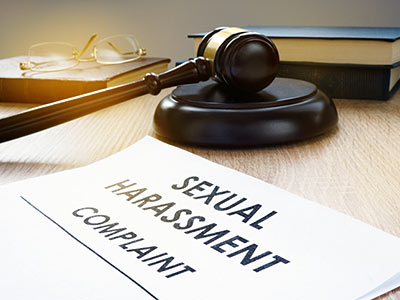
Any person may report sex discrimination, including sexual harassment (whether or not the person reporting is the person alleged to be the victim of conduct that could constitute sex discrimination or sexual harassment), in person, by mail, by telephone, or by electronic mail, using the contact information listed for the Title IX Coordinator, or by any other means that results in the Title IX Coordinator receiving the person’s verbal or written report. Such a report may be made at any time (including during non-business hours) by using the telephone number or electronic mail address, or by mail to the office address, listed for the Title IX Coordinator.
Upon receipt of a formal complaint, the College will provide written notice to the parties who are known, which explains the Complaint Process and:
- Provides notice of the allegations potentially constituting sexual harassment including sufficient details known at the time and with sufficient time to prepare a response before any initial interview;
- Includes a statement that the respondent is presumed not responsible for the alleged conduct and that a determination regarding responsibility is made at the conclusion of the complaint process;
- Informs the parties that they may have an advisor of their choice who may be, but is not required to be, an attorney, and that they may inspect and review evidence under subsection 7 of Subsection D of the NSHE Policy Against Unlawful Discrimination and Harassment (the Policy); and
- Informs the parties of the prohibition against knowingly making false statements or knowingly submitting false information during the complaint process.
If, in the course of an investigation, the College decides to investigate allegations about the complainant or respondent that are not included in the notice provided, the College must provide notice of the additional allegations to the parties whose identities are known.
Dismissal of a Complaint
If the conduct alleged in the formal complaint would not constitute Title IX Sexual Harassment as defined in subsection 2 of Subsection D of the Policy even if proved, did not occur in the College’s education program or activity, or did not occur against a person in the United States, then the College will dismiss the formal complaint with regard to that conduct for purposes of sexual harassment under Title IX. Such conduct will then be considered under Subsection C of the Policy.
The College may dismiss the formal complaint or any allegations therein, if at any time during the investigation or hearing:
- A complainant notifies the Title IX Coordinator in writing that the complainant would like to withdraw the formal complaint or any allegations therein;
- The respondent is no longer enrolled or employed by the College; or
- Specific circumstances prevent the College from gathering evidence sufficient to reach a determination as to the formal complaint or allegations therein.
Written notice of the dismissal and reason(s) therefor will be provided simultaneously to the parties.






